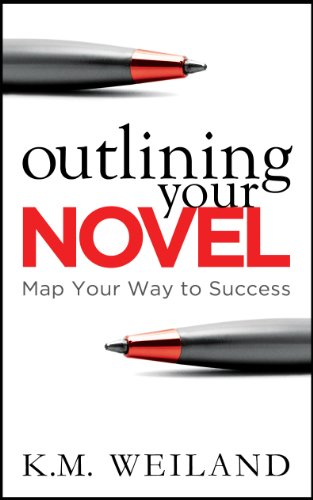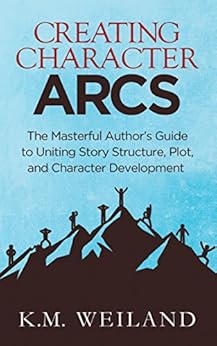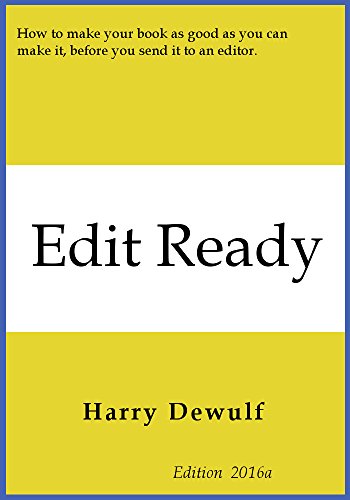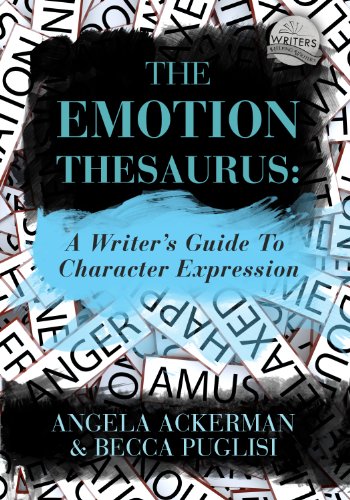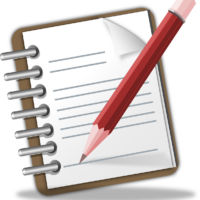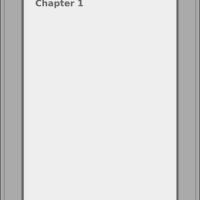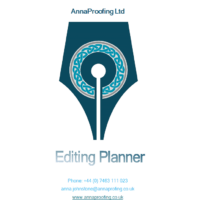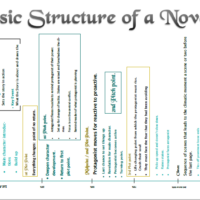
by Anna Johnstone | May 16, 2019 | Advice, Blog
Sorry for the hiatus in my content, I have been extremely busy with editing and it has not allowed time for creating content, and I spent the first two weeks of April visiting family in Zimbabwe. Don’t worry: I won’t bore you with my holiday photos.
This post has something for everyone. There are links to some great advice as well as some interesting news from PRH who plan to reward readers for their loyalty. I’ve also included some great book suggestions.
Articles
Penguin Random House in the US has launched a ‘Reader Rewards Loyalty Program’, a free promotional initiative that lets readers earn one free book for every 12 PRH titles they purchase.
5 Secrets of Story Structure: How to Write a Novel That Stands Out (Helping Writers Become Authors Book 6)
by K. M. Weiland
Want to take your writing to the next level? Discover the “secrets” of story structure other authors are overlooking!
If you’ve read all the books on story structure and concluded there has to be more to it than just three acts and a couple of plot points, then you’re absolutely right! It’s time to notch up your writing education from “basic” to “black belt.” Internationally-published author K.M. Weiland shares five “secret” techniques of advanced story structure.
In the multi-award-winning Structuring Your Novel, Weiland showed writers how to use a strong three-act structure to build a story with the greatest possible impact on readers. Now it’s time to take that knowledge to the next level.
In this supplemental book, you’ll learn:
-
- Why the Inciting Event isn’t what you’ve always thought it is
-
- What your Key Event is and how to stop putting it in the wrong scene
-
- How to identify your Pinch Points—and why they can make the middle of your book easier to write
-
- How to create the perfect Moment of Truth to move your protagonist from reaction to action
-
- How to ace your story’s Climactic Moment every single time
And much more!
By the time you’ve finished this quick read, you’ll know more about story structure than the vast majority of aspiring authors will ever know—and you’ll be ready to write an amazing novel that stands above the crowd.
Outline Your Novel
by K. M. Weiland
Can Outlining Help You Write a Better Story? Writers often look upon outlines with fear and trembling. But when properly understood and correctly wielded, the outline is one of the most powerful weapons in a writer’s arsenal.Outlining Your Novel: Map Your Way to Success will:•Help you choose the right type of outline for you•Guide you in brainstorming plot ideas•Aid you in discovering your characters•Show you how to structure your scenes•Explain how to format your finished outline•Instruct you in how to use your outline•Reveal the benefits•Dispel the misconceptions include exclusive interviews with ten respected authors, answering important questions about outlining. Outlining can organize your writing and help you take your stories to the next level. Find out how!
Edit Ready: How to make your book as good as you can, before you send it to an editor.
By Harry Dewulf
Edit Ready is an author’s reference book for use during story development, writing and both self editing and when you get your manuscript back from your editor.
Put like that, it sounds rather dry, but reference books always do.
Actually, though, although it has an exhaustive contents page, three different indices and 6 appendices, this is not a dry reference book. In fact, the ink is never dry for long.
Because Edit Ready is compiled from notes, guidance, teaching and conversation with authors, while working with them to make their manuscripts as good as they can, but also, to help them to become better authors.
Every time I edit a book, I look at the topics that arise, and try to find a way of generalizing the help and advice I give to its author, so that I can pass the advice on to all authors.
So really, Edit Ready is an attempt to avoid editing, by ensuring you know in advance about anything and everything that your editor has to deal with. The idea is that this will make you a better writer.
Speaker for the Dead
by Orson Scott Card
A FALLEN HERO – HAUNTED BY HIS PAST, BUT CAN HE CHANGE THE FUTURE?
Ender Wiggin was once considered a great military leader, a saviour for mankind.
But now history judges his destruction of an alien race as monstrous rather than heroic.
In the aftermath of the war, Ender disappeared, and a powerful voice arose: The Speaker for the Dead, who told the true story behind the battle with the aliens. Now, years later, a second alien race has been discovered. But again they are strange and frightening – and again, humans are dying.
It is only the Speaker for the Dead, secretly Ender Wiggin, who has the courage to confront the mystery . . . and the truth.
The Hugo and Nebula award-winning sequel to the classic science fiction novel Ender’s Game
Broken Empire
By E. A. Copen
In an empire where political power is everything, Captain Timothy Val wants one thing: to serve his empire with honor and distinction. But after a mission to quell a revolt goes terribly wrong, Timothy is branded a traitor and barely escapes with his life. His only hope of regaining his lost honor and clearing his family name rests in the hands of a senator planning to use him as the face of a revolution.
With an intergalactic war looming and civil unrest spreading through the empire, Timothy must tread carefully. Assassins wait around every corner, and his new allies have made him powerful enemies, enemies that may not be entirely human.

by Anna Johnstone | Jan 22, 2019 | Blog
Good morning!
Welcome to another Tuesday round-up. This week we have another great podcast from The Creative Penn (okay, total fangirl) discussing running a one-person business, the Kobo Writing Life talks about podcasting as content marketing., and the Writership podcast discusses scene and story resolutions. In articles, we have two very informative articles on shrinking author incomes, and another on corporate censorship and their unchecked power. I’ve not had time to check out videos for this week’s round-up, but hopefully, I’ll be able to gather a few links for next week.
Happy reading!
The Disastrous Decline in Author Incomes Isn’t Just Amazon’s Fault
The bookselling behemoth is making life harder for writers, but so is the public perception that art doesn’t need to be paid for.
Publisher's Weekly | Breaking Down Financial Woes for Writers
In an effort to gather as much information as possible about how much authors earned in 2017, the Authors Guild conducted its largest income survey ever last summer, reaching beyond the guild’s own members to include 14 other writing and publishing organizations. In all, the survey drew 5,067 responses from authors published by traditional publishers and from hybrid and self-published authors as well.
Corporate Censorship Is a Serious, and Mostly Invisible, Threat to Publishing
When state or civil authorities blacklist books, the act is correctly labeled censorship. But what is the word when corporations order their subsidiaries to snuff out information?
The Creative Penn | How To Be A Successful Company Of One With Paul Jarvis
What if you could scale your revenue without growing your expenses? What if you could make a living with your writing but still remain alone in your writing room? I discuss these questions and more today with Paul Jarvis.
In the intro, I talk about second-hand book sales [Dean Wesley Smith], how the death of poet Mary Oliver can help deepen our writing [listen to her on the On Being Podcast], why ‘sparking joy‘ is so important (referencing Marie Kondo on Netflix), plus the Kickstarter for Intellectual Property Tracking.
Kobo Writing Life | Ep 133 – Let’s Talk Podcasting with Amanda Cupido
n this week’s episode, Cristina sits down with author and podcast producer Amanda Cupido to talk about her book Let’s Talk Podcasting: The Essential Guide to Doing it Right. Amanda talks about how she got into podcasts, the difference between podcasts and older media such as radio, and she discusses the underrepresented voices in the podcasting community. Amanda also shares her tips for starting your own podcast and the most common roadblock that aspiring podcasters encounter.
Writership Podcast | Ep. 136: Resolutions
We all have some idea of what a resolution is, but what are these scene and story-enders meant to do? In this episode, I explore scene and story resolutions in the context of C. Gabriel Wright’s LBGTQ love story, “Someone.” The editorial mission encourages you to collect resolutions by reading and watching stories—and from your own life.

by Anna Johnstone | Nov 28, 2017 | Advice, Blog, Service
A sample edit is an indicator of many things; the professionalism and ability of the editor is only one factor. The sample indicates the level of the work to be undertaken and it allows the editor to asses pricing but did you realise it also shows the editor the level of respect they hold for the skills of the editor?
These did not develop overnight and it is not something that just everyone can do. In the last fourteen months, I have lost count of the number of sample edits I have completed. Some of them took me a whole morning and others took me the best part of a day, depending on the amount of work that needed to be done.
‘But why should authors pay for what they can get for nothing?‘
The reason to pay for samples is two-fold.
First. Refusal to pay for sample edits signal, at least in part, an expectation that editors are automatically obligated to give up their time, and should be grateful for every scrap of attention an author puts their way. Given that this is an attitude that many of us in the creative industries have to explain when companies and individuals want to pay us in ‘exposure’ and think that the satisfaction of completing the work should be its own reward, it saddens me when we have to deal with this from other creatives. The willingness of an author to pay for a sample edit is a clear indication that they acknowledge that your time is as valuable as the skills they want to employ. It says ‘I understand there is a person at the other end of this email who is working hard to make a living, and they deserve to be paid fairly for the work they put in‘. It tells the editor a great deal about the author: remember they are assessing the author every bit as much as the author is evaluating them. Simply put, it’s a matter showing respect between author and editor.
Second. Many service industries charge a call out fee to cover the time it takes them to assess the work in question, and a sample edit is no different. You would not expect a plumber, cleaner, gardener or electrician to come to your home or to give up a morning of their time for nothing. In my view, creative services are no different. The sample fee implies the level of commitment of that potential client. Even web developers charge a consultation fee, This is not to say that editors should not offer free samples if they so wish, only that you should not be put off when editors do charge for their sample edits. By ignoring the editors who don’t offer free samples you could be depriving yourself of an opportunity. What you have found is not a ‘greedy editor‘, but a confident and skilled professional who knows the value of both their skills and their time.

by Anna Johnstone | Oct 16, 2017 | Advice, Favourites, Reading List
This post offers a selection of my personal favourite titles on self-editing. Many new writers have been caught out in thinking that once they have completed their first draft all they need to do is find an editor to spruce it up with a proofread. This could not be further from reality. The editor is who you go to once you have gone as far as you can without help (self-editing) but how do you go about such a task? In truth, the answer, like in writing, is that there is no single right way to go about it and, unfortunately, there is no magic wand I can wave to make it easy either. Your best bet is to find a system that works for you but always be open to listening to how others do theirs.
The advice in these few books is succinct and concise, so new writers will find it endlessly useful.
Let outlines help you write a better book!
Writers often look upon outlines with fear and trembling. But when properly understood and correctly wielded, the outline is one of the most powerful weapons in a writer’s arsenal.
Have you written a story with an exciting concept and interesting characters—but it just isn’t grabbing the attention of readers or agents? It’s time to look deeper into the story beats that create realistic and compelling character arcs. Internationally published, award-winning novelist K.M. Weiland shares her acclaimed method for achieving memorable and moving character arcs in every book you write.
Edit Ready is an author’s reference book for use during story development, writing and both self editing and when you get your manuscript back from your editor.
One of the biggest problem areas for writers is conveying a character’s emotions to the reader in a unique, compelling way. This book comes to the rescue by highlighting 75 emotions and listing the possible body language cues, thoughts, and visceral responses for each.
by | Feb 20, 2017 | Blog
Update: 6th March 2017
Sadly, due to lack of takers, this event has had to be cancelled.
A couple of months ago I was kindly invited by another editor if I would be interested in attending a small but intensive writing workshop in Paris. Obviously, I jumped at the chance. It’s Paris! However, this isn’t the only reason I can’t wait to go (no, not the wine. Well, not entirely). What I am really excited about is the opportunity this trip will offer to learn from other writers and editors and improve the service I offer. I will admit I am a bit of a fangirl but with good reason. I have two courses on my Udemy account. Both of them are his and have been hugely helpful. His YouYube channel is another invaluable resource for new writers. The other guests have been carefully selected in order to provide expertise and insight into the writing process. It will provide a face-to-face forum for authors to take part in open discussion, storytelling, exercises and games.
Here’s the really good news: there are still four places left as far as I know. All you have to do is email Harry with the reason you want to be there. The details can be found on Harry’s website. The weekend will stretch from the 25th to the 26th May 2017. Booking will only remain open until the end of February so do hurry. ‘Inspiration and Games’ costs €200 for two nights. If you want to arrive on the 25th (which is what I am doing because the return flights from sunny Luton are a good deal cheaper on the 25th) and spend an extra day in Paris, it’s €225. This covers accommodation, two evening meals and breakfast (excluding the evening of the 25th and breakfast on the 26th).





